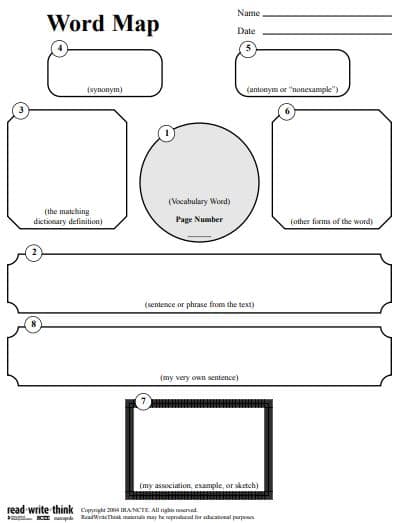
59 German Oral Exam Phrases With Audio
Are you about to take a German oral exam?
You can help prepare with this bank of 59 German oral exam phrases, which will help you talk about yourself, key topics and more.
Contents
- 59 Ready-to-use Phrases to Ace Your German Oral Exam
- How to Prepare for a German Oral Exam
- And One More Thing...
Download: This blog post is available as a convenient and portable PDF that you can take anywhere. Click here to get a copy. (Download)
59 Ready-to-use Phrases to Ace Your German Oral Exam
I personally consider Steve Jobs to be one of the greatest oral speakers. His key tip was: rehearse, rehearse and rehearse—with the phrases you want to use in your presentation.
This made me think to myself, “hey, why don’t I create a phrase bank to prepare for German oral exams?”
Here are some of my phrase banks for German oral exams, grouped by category. We’ve based these categories largely on the Goethe-Zertifikat oral exam rubrics, but you can mix, match and adapt them to any exam you’re planning to take.
Remember to take note of the different ways of saying “you”. You should use Sie for formal situations, such as asking your examiner questions, and du for informal situations, such as role-playing a conversation with a friend with the examiner. We’ve listed both forms below in all our phrases.
Introduction Phrases and Questions
Talking About Yourself
Ich heiße… / Ich bin… (My name is…/I am…)
Ich komme aus… (I come from…)
Ich wohne in… (I live in…)
Ich bin … Jahre alt. (I am … years old.)
Meine Hobbys sind… (My hobbies are…)
Asking About Someone Else
Was machen Sie/machst du gerade? (What are you doing right now?)
Was machen Sie/machst du beruflich? (What do you do professionally?)
Was machen Sie in Ihrer/machst du in deiner Freizeit? (What do you do in your free time?)
Wann haben Sie/hast du frei? (When are you free?)
Phrases and Questions for Shopping
For many beginner and lower-intermediate German oral exams, you’ll need to demonstrate that you can get by in daily German life. You may be asked to role-play a conversation in a store or some other German public place. These questions and phrases will help.
For the most part you should avoid using the du form in this context, as you would want to speak respectfully and formally with strangers.
Wie viel kostet … ? / Was kostet … ? (How much does … cost?)
Wo kaufen/bekommen Sie…? (Where do you buy/get…?)
Wie sind Ihre/deine Arbeitszeiten? (What are your working hours?)
Wann schließt … ? (When does … close?)
Wann öffnet die Bäckerei/der Supermarkt/die Apotheke? (When does the bakery/supermarket/pharmacy open?)
Ich hätte gern / Ich möchte… (I would like…)
Phrases and Questions to Ask for Help
Ich habe eine Frage. (I have a question/inquiry.)
Könnten Sie/könntest du mir bitte helfen? (Could you please help me?)
Könnten Sie/könntest du bitte mir ein/eine/einen … geben? (Could you please give me a … ?)
Könnten Sie mir sagen… (Could you tell me…)
Ich möchte wissen, ob… (I would like to know whether…)
Vielen Dank für die Informationen/Hilfe. (Thanks a lot for the information/help.)
Expressing and Asking for Opinions
Was meinen Sie/meinst du dazu? (What do you think about that?)
Meiner Meinung nach… (In my opinion…)
Ich finde, dass… (I find that…)
Ich glaube, dass… (I think that…)
Haben Sie/hast du etwas dazu zu sagen? (Do you have something to say about that?)
Wie denken Sie/denkst du? (What do you think?)
Giving a Mini-presentation
At the intermediate stages and up, you’ll need to prove that you can discuss a topic coherently, support your opinions and address counterarguments. The Goethe-Zertifikat B1 exam, for example, requires a brief presentation about an everyday topic.
Opening Phrases
Guten Tag, meine Damen und Herren. (Hello, ladies and gentlemen.)
Mein heutiges Thema ist… (Today my topic is…)
Ich spreche über dieses Thema, weil… (I am speaking about this topic because…)
Main Points
Ich möchte über die folgenden Punkte sprechen… (I would like to speak about the following points…)
Erstens/zweitens/drittens werde ich über … sprechen. (First/second/third I will be talking about … .)
Concluding Phrases
Ich möchte kurz zusammenfassen. (I would like to shortly conclude.)
Abschließend möchte ich sagen, dass… (In conclusion I would like to say that…)
Vielen Dank für Ihre/deine Aufmerksamkeit. (Thank you for the attention.)
Haben Sie noch Fragen? (Do you have any questions?)
Important Grammatical Structures for a Smooth German Oral Exam
Partizip 2 (Present Perfect Tense)
This tense is particularly useful for question-framing. Of course to use this tense, just be sure you’re familiar with your German participles.
Haben Sie schon etwas gegessen? (Have you eaten something already?)
Wie sind Sie/bist du nach London gefahren? (How did you travel to London?)
Wann hast du Deutsch gelernt? (When did you learn German?)
Modalverben (Modal Verbs)
German modal verbs are quite handy to use in question-framing or expressing wants, abilities, permissions, etc.:
Könn(t)en Sie Bitte… (Could/Can you please…)
Ich wollte eigentlich… (I actually wanted to…)
Darf ich… ? (May I… ?)
Trennbare Verben (Separable Verbs)
Many German oral exams will ask you to make plans or negotiate with another German speaker to demonstrate flexible conversation skills. Separable verbs are very useful here.
Kommst du Freitag um neunzehn Uhr mit? (Are you coming along on Friday at 7pm?)
Was bringst du zur Party mit? (What are you bringing along to the party?)
Um wie viel Uhr soll ich dich abholen? (At what time should I pick you up?)
Was ziehst du heute an? (What are you wearing today?)
Das sieht gut aus. (That looks good.)
Konnektoren (Connectors)
These work well in expressing opinions, thoughts, conditions and situations.
weil (because):
Remember to place the verb in the second clause at the end.
Das ist so, weil… (That is so, because…)
Ich denke so, weil… (I think so, because…)
Ich habe keine Zeit, weil… (I have no time because…)
Ich brauche es, weil… (I need it because….)
Ich habe es so gemacht, weil… (I did it that way because…)
dass (that):
This connector is used to reinforce facts and express direct speech as indirect. It’s very handy when you want to express your personal opinion. This again displaces the verb in the second clause to the end.
Ich finde, dass… (I find that…)
Mir ist es klar, dass… (It is clear that…)
Ich meine, dass… (I mean to say that…)
Das zeigt uns, dass… (It shows us that…)
obwohl (although):
This could either be placed in the first clause or the second.
Obwohl ich das gesagt habe, glaube ich… (Although I said this, I think…)
Ich bin überhaupt nicht müde, obwohl ich die ganze Nacht nicht geschlafen habe. (I’m not tired at all, even though I didn’t sleep all night.)
How to Prepare for a German Oral Exam
Now that you’ve learned 59 key German oral exam phrases, it’s time to see how you can prepare for your exam.
Familiarize Yourself with the Format of the Exam
This is the first step to ensuring that you’ll be calm and confident on test day. You’ll know what to expect, how to present yourself and, most importantly, your preparation will be focused and relevant.
If you’re taking an oral exam in an academic setting, your teacher or professor will likely explain the scope of the test, even if it’s just the basics. When you’re studying, be sure to adhere to that structure—time yourself, discuss certain topics in the order your professor specified, leave your notes somewhere hard to reach—anything to imitate what you’ll actually be experiencing on test day.
With official German language tests, you may need to do a little bit of research to know the test structure. However, it’ll be easy to find.
For example, there’s tons of information about the popular Goethe-Zertifikat exam online. You’ll see that the A1 (beginner) level exam has a basic question-and-answer format, and you’ll need to speak for about 15 minutes. However, the C2 (advanced) level exam requires you to deliver a presentation and respond to counterarguments, also within 15 minutes.
Memorize Words Smarter with Word Maps
Once you know the format of the test, you’ll know what vocabulary topics would be best for you to study. Word maps are an incredible tool to avoid those long, uncomfortable pauses while speaking.
That’s because word maps make it easy to memorize a lot of related words at once. That way, you can be fully prepared for any topic you need to discuss in your German oral exam and handle anything that’s thrown at you during the test.
They’ll also help you get more use out of the phrases you’ll be preparing to use in your oral exam. If you have a wide range of nouns, verbs and adjectives to work with, you can easily swap them in and out of your German phrases, adapting them to specific situations.
The beauty of this technique is that you can be creative within a framework. Check out my examples below, where you’ll see that I’ve organized words both by theme (work) and part of speech.
Verbs:
- verdienen (to earn)
- ausgeben (to spend)
- sparen (to save)
- ausgleichen (to balance)
Nouns:
- die Motivation (motivation)
- das Engagement (dedication)
- das Berufsleben (work life)
- die Berufswelt (vocational world)
- das Gehalt (salary)
Adjectives:
Particles:
With the above word list, I can churn out the following sentence, for example:
Ich verdiene viel, weil mein Gehalt hoch ist. Aber ich gebe viel zu viel Geld aus. Manchmal denke ich, dass ich wenig verdiene. Aber das Problem ist, dass ich kaum Geld spare. (I earn a lot, because my salary is high. But I also spend a lot. Sometimes I think that I earn less. But the problem is that I don’t save a lot.)
Practice in the Mirror
Success in a German oral exam isn’t just about the words and phrases you use. It’s also about your body language, eye contact and overall demeanor. These are key aspects of your speaking skills.
That’s why it’s important to practice speaking German in front of a mirror. Here’s what to look for:
- A confident posture, sitting up straight but calm and relaxed.
- Hands folded on your lap, not in your pockets.
- Eye contact with the examiner. Eye contact is a big deal in general in German culture, and more so in German oral exams. Not looking at the examiner and speaking while looking down is considered a mark of low self-confidence.
Watch and Listen to Native Speakers
When practicing for the exam, listening to native speakers can continually improve your skills. You can listen to the phrases listed in this post in action by looking for them on audio resources like YouTube and podcasts, as well as learning programs like FluentU.
FluentU takes authentic videos—like music videos, movie trailers, news and inspiring talks—and turns them into personalized language learning lessons.
You can try FluentU for free for 2 weeks. Check out the website or download the iOS app or Android app.
P.S. Click here to take advantage of our current sale! (Expires at the end of this month.)
The more you listen to and practice your phrases, the more easily they’ll come to you when you’re speaking.
With these German oral exam phrases, you can walk into your test feeling more prepared.
Viel Glück! (Good luck!)
Download: This blog post is available as a convenient and portable PDF that you can take anywhere. Click here to get a copy. (Download)
And One More Thing...
Want to know the key to learning German effectively?
It's using the right content and tools, like FluentU has to offer! Browse hundreds of videos, take endless quizzes and master the German language faster than you've ever imagine!
Watching a fun video, but having trouble understanding it? FluentU brings native videos within reach with interactive subtitles.
You can tap on any word to look it up instantly. Every definition has examples that have been written to help you understand how the word is used. If you see an interesting word you don't know, you can add it to a vocabulary list.
And FluentU isn't just for watching videos. It's a complete platform for learning. It's designed to effectively teach you all the vocabulary from any video. Swipe left or right to see more examples of the word you're on.
The best part is that FluentU keeps track of the vocabulary that you're learning, and gives you extra practice with difficult words. It'll even remind you when it’s time to review what you’ve learned.
Start using the FluentU website on your computer or tablet or, better yet, download the FluentU app from the iTunes or Google Play store. Click here to take advantage of our current sale! (Expires at the end of this month.)









